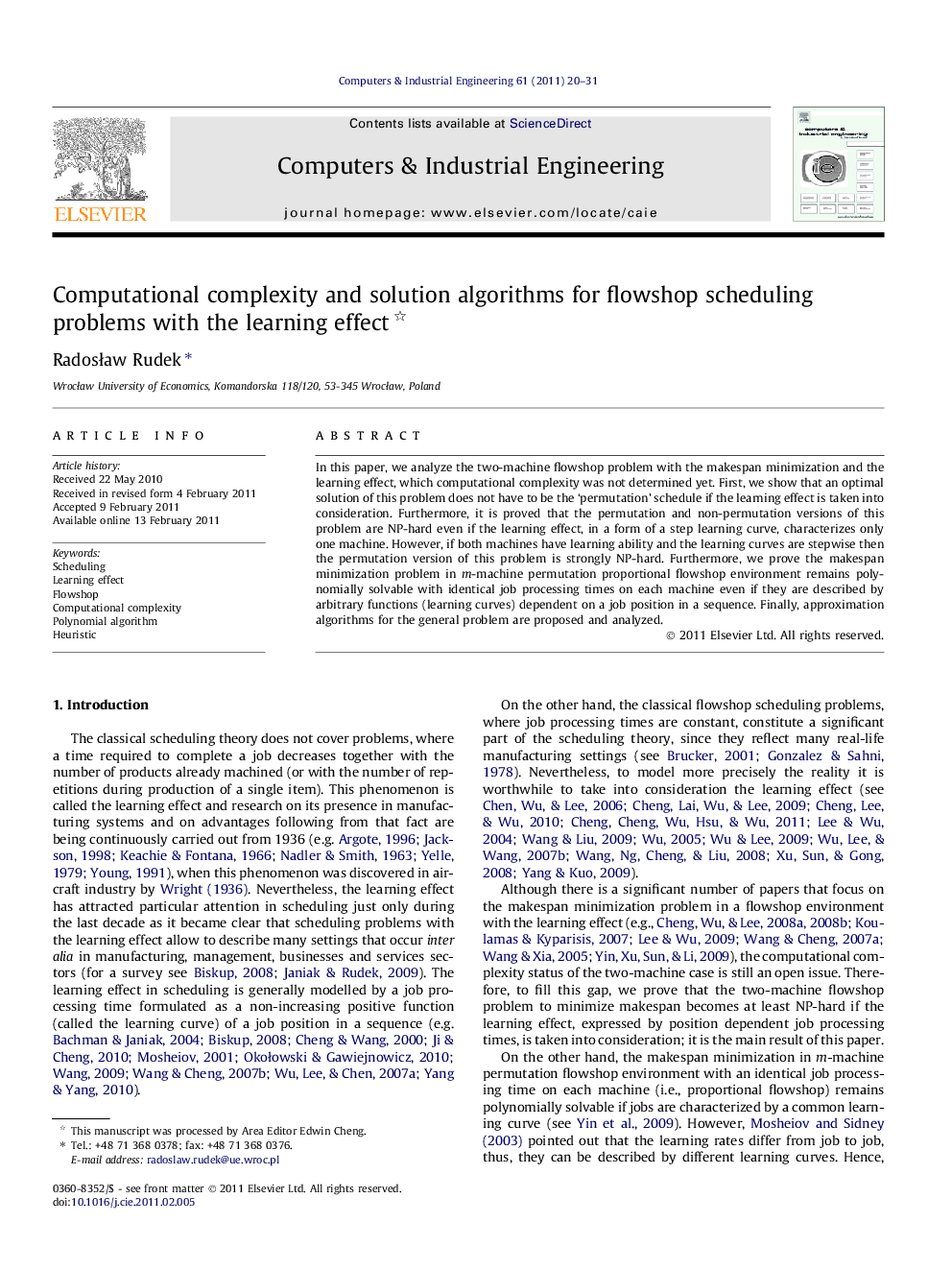| Article ID | Journal | Published Year | Pages | File Type |
|---|---|---|---|---|
| 1134767 | Computers & Industrial Engineering | 2011 | 12 Pages |
In this paper, we analyze the two-machine flowshop problem with the makespan minimization and the learning effect, which computational complexity was not determined yet. First, we show that an optimal solution of this problem does not have to be the ‘permutation’ schedule if the learning effect is taken into consideration. Furthermore, it is proved that the permutation and non-permutation versions of this problem are NP-hard even if the learning effect, in a form of a step learning curve, characterizes only one machine. However, if both machines have learning ability and the learning curves are stepwise then the permutation version of this problem is strongly NP-hard. Furthermore, we prove the makespan minimization problem in m-machine permutation proportional flowshop environment remains polynomially solvable with identical job processing times on each machine even if they are described by arbitrary functions (learning curves) dependent on a job position in a sequence. Finally, approximation algorithms for the general problem are proposed and analyzed.
Research highlights► The makespan minimization problem in the two-machine flowshop with the learning effect is NP-hard. ► The makespan proportional flowshop is polynomially solvable with position based processing times. ► The linear combination of sum and bottleneck linear assignment problems is polynomially solvable.
